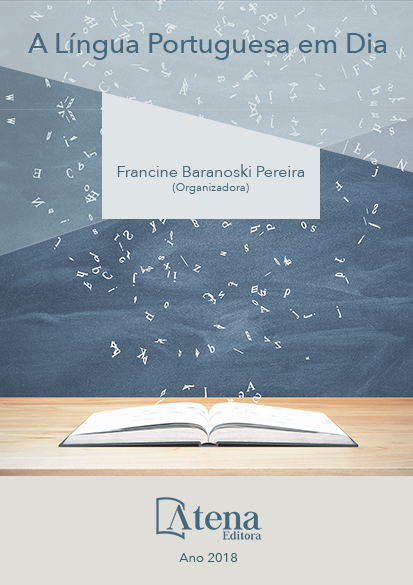
AS FORMAS PRONOMINAIS TU, VOCÊ E O(A) SENHOR(A) NO PORTUGUÊS FALADO EM CAMETÁ-PARÁ
Este trabalho apresenta um estudo
sobre a alternância das formas pronominais
de referência à segunda pessoa, Tu/Você/o(a)
Senhor(a), na função de sujeito, no português
falado na zona urbana de Cametá/PA. Adota,
como quadro teórico, os postulados teóricos
da Teoria da Variação e Mudança Linguística.
Objetiva analisar o papel de fatores linguísticos
e extralinguísticos ou sociais como motivadores
do comportamento variável de tu/você/o(a)
senhor(a) em função de sujeito. O corpus
contém dados de interações face a face de
16 grupos focais, cada qual constituído por 04
sujeitos participantes, sendo um o informantebase, todos cametaenses, estratificados de
acordo com a faixa etária (21 a 29 anos e
32 a 42 anos), o sexo/gênero e o nível de
escolaridade (médio e superior), totalizando
64 participantes. Na fala dos 16 informantesbase, obtivemos 527 dados de uso de Tu, Você
e o(a) Senhor(a), os quais foram analisados
quantitativamente e qualitativamente. Os
resultados apontaram 307 ocorrências da
forma pronominal tu, 182 de você e apenas 38
da forma o(a) senhor(a), o que corresponde,
respectivamente, a 58.3%, 34.5% e 7.2%. No
âmbito do Sociofuncionalismo, ao avaliarmos a
correlação entre variável dependente e variáveis
independentes pelo princípio da marcação,
verificamos que a forma tu é menos marcada
na linguagem cametaense, considerando-se
a distribuição de frequência e a complexidade
estrutural. A forma você, de menor frequência e
maior complexidade estrutural e cognitiva, por
isso mais marcada, encontra predileção, nos
contextos mais marcados.
AS FORMAS PRONOMINAIS TU, VOCÊ E O(A) SENHOR(A) NO PORTUGUÊS FALADO EM CAMETÁ-PARÁ
-
DOI: 10.22533/at.ed.89518221124
-
Palavras-chave: Pronomes de referência à segunda pessoa, Variação linguística; Princípio da marcação.
-
Keywords: Pronouns of reference to the second person; Linguistic variation; principle of marking.
-
Abstract:
This article presents a study of the
alternation of pronominal forms of reference to
the second person, Tu/Você/o(a) Senhor(a), in
the subject function, in the Portuguese spoken
in the urban area of Cametá. It adopts, as a
theoretical framework, the postulates in the
Linguistic Variation and Change Theory. Our
research intends to analyze the role of linguistic factors and of extralinguistic or social factors as motivators of the variable behavior
of tu/você/o(a) senhor(a) in the subject function. The corpus contains data of face
to face interaction of 16 focus groups, each one constituted by 04 (four) participant
individuals, with one being the basis informant, all born in Cametá, stratified by age
(21-29 years old and 32-42 years old), gender (male and female) and level of education
(high school and higher education), totalizing 64 participants. By the basis informants
speech, we got 527 data uses of Tu, Você e o(a) Senhor(a), which were quantitatively
and qualitatively analyzed. The results pointed 307 occurrences of the pronominal form
tu, 182 of você and only 38 of o(a) senhor(a), which represents, respectively, 58.3%,
34.5%, e 7.2%. Within the Social functionalism, evaluating the correlation between
dependent variable and independent variables by the principle of marking, we noted
that the form tu is less marked in the language of Cametá, considering the distribution
of frequency and structural complexity. The form você, that presents less frequency
and greater structural and cognitive complexity, hence more marked, finds predilection,
in more marked contexts.
-
Número de páginas: 15
- Raquel Maria da Silva Costa
- Kéttelen Mayara Tavares Brito
- Karina Pereira Castro
- RAQUEL MARIA DA SILVA COSTA FURTADO


